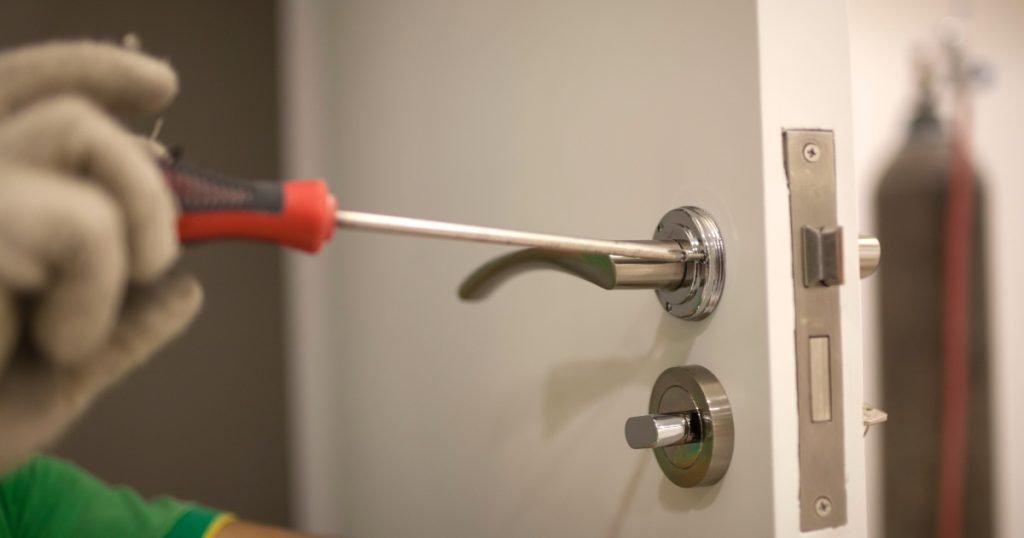Safety and security are crucial aspects of homeownership. One of the most important factors to consider when it comes to protecting your home and family is the type of lock you choose.
There are numerous types of locks available, and they all have their advantages and disadvantages. In this comprehensive article, we will explore the worst and best types of locks for your house requirements.
The Importance of Choosing the Right Lock
Security Considerations
Selecting the right lock for your home is crucial to ensure the safety of your property, belongings, and family. The level of security a lock provides is determined by several factors, such as its construction, materials used, and the locking mechanism. A high-quality lock will deter burglars, withstand break-in attempts, and provide peace of mind.
Convenience and Ease of Use
Another essential factor to consider when choosing a lock is its ease of use and convenience. A lock should be simple to operate for authorised users, while remaining secure against unauthorised access. It’s essential to balance security with ease of use to avoid creating a frustrating experience for household members.
The Worst Types of Locks for Your Home
Spring Latch Locks
Spring latch locks are a common type of lock used on entry doors but are considered to be one of the least secure options. They are inexpensive and easy to install, which makes them popular, but their lack of security features makes them vulnerable to break-ins.
Spring latch locks can be easily bypassed with simple tools like a credit card, screwdriver, or a lock-picking set. They are not recommended for securing your home’s main entrances.
Warded Locks
Warded locks are another type of lock that provides minimal security. They are one of the oldest types of locks still in use, featuring a series of internal wards that block the rotation of a key unless it matches the lock’s configuration. However, warded locks can be easily picked with skeleton keys or improvised tools. As a result, they are not suitable for securing your home.
Keyed Entry Knob Locks
Keyed entry knob locks are often found on residential doors but provide minimal security due to their design. The lock is integrated into the door handle, making it vulnerable to forceful attacks, such as kicking or using a wrench.
While they may be appropriate for interior doors, keyed entry knob locks are not recommended for exterior doors.
The Best Types of Locks for Your Home
Deadbolts
Deadbolts are widely regarded as one of the best types of locks for securing your home. They provide a high level of security, thanks to their robust construction and locking mechanism. Deadbolts are available in two main types: single cylinder and double cylinder.
Single Cylinder Deadbolts
Single cylinder deadbolts are the most common type of deadbolt and feature a keyed entry on the exterior side and a thumb turn on the interior side. They provide excellent security while still allowing for easy egress in case of an emergency.
However, single cylinder deadbolts can be vulnerable to “credit card” attacks if installed on doors with glass panels, as an intruder could break the glass and unlock the door from the inside using the thumb turn.
Double Cylinder Deadbolts
Double cylinder deadbolts address the potential vulnerability of single cylinder deadbolts by requiring a key to unlock the door from both the exterior and interior sides. This makes them more secure against break-ins involving glass panel doors.
However, this increased security comes at the cost of convenience, as occupants will need a key to exit the home in case of an emergency. It is essential to weigh the pros and cons of both types of deadbolts before making a decision.
Smart Locks
Smart locks are a modern and technologically advanced type of lock that offers both security and convenience. They typically use Bluetooth, Wi-Fi, or Z-Wave technology to connect to your smartphone or home automation system, allowing you to control access to your home remotely.
Smart locks often feature keyless entry options, such as PIN codes, fingerprint scanners, or facial recognition. They also provide the ability to monitor access to your home, set temporary access codes, and receive notifications when the door is locked or unlocked.
While smart locks offer numerous advantages, it is essential to research and choose a reputable brand with strong security features to avoid potential vulnerabilities.
Mortise Locks
Mortise locks are considered one of the most secure types of locks for residential use. They consist of a lock body that is installed within a cavity in the door, a latch bolt, and a deadbolt. Mortise locks are known for their durability and resistance to forced entry, making them a popular choice for homeowners looking for a high level of security.
Mortise locks can be more expensive and challenging to install compared to other lock types, but their superior security makes them worth the investment.
Additional Security Measures
Reinforced Door Frames
In addition to choosing a high-quality lock, it is crucial to reinforce your door frame to prevent forced entry. Door frame reinforcements include strike plates, door jamb armour, and hinge reinforcements. These enhancements help distribute force across a larger area, making it more difficult for an intruder to kick in the door.
Security Cameras and Alarms
Installing security cameras and alarm systems can provide an additional layer of protection for your home. Security cameras can act as a deterrent to potential burglars and allow you to monitor your property remotely. Alarm systems can alert you and the authorities to any unauthorised entry, providing a rapid response in case of a break-in.
Conclusion
Selecting the right lock for your home is an essential aspect of ensuring the safety and security of your property and family. While some locks, such as spring latch locks, warded locks, and keyed entry knob locks, provide minimal security, other options like deadbolts, smart locks, and mortise locks offer superior protection.
Consider factors such as security, convenience, and ease of use when choosing a lock for your home. Additionally, invest in door frame reinforcements and security systems to further enhance your home’s security.
By making informed decisions and taking a proactive approach to home security, you can create a safe and secure environment for your family.

